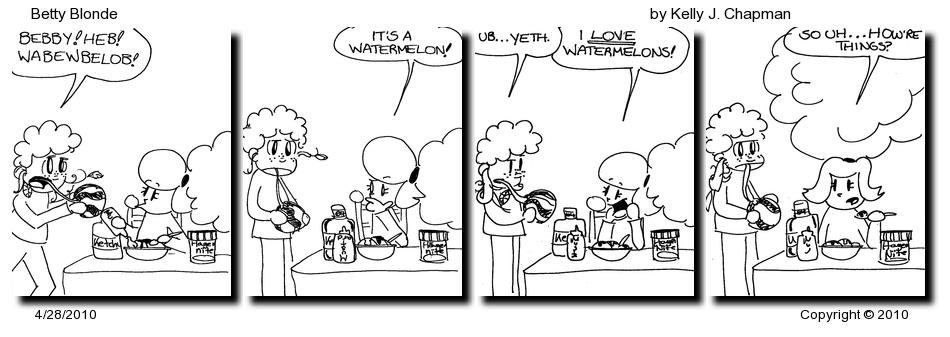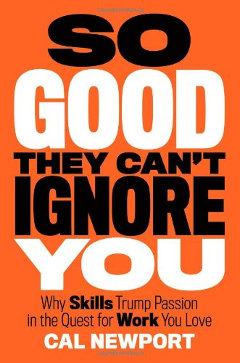 A professor of Computer Science from Georgetown University wrote a book that sounds interesting about the importance of acquiring skills as a base from which to work at something you love. The premise of the book is very much aligned with things I have written previously on this blog, especially the recent post about Mike Rowe’s thoughts on the topic. Here is an excerpt from the blurb about the book on Amazon:
A professor of Computer Science from Georgetown University wrote a book that sounds interesting about the importance of acquiring skills as a base from which to work at something you love. The premise of the book is very much aligned with things I have written previously on this blog, especially the recent post about Mike Rowe’s thoughts on the topic. Here is an excerpt from the blurb about the book on Amazon:
Cal Newport debunks the long-held belief that “follow your passion” is good advice. Not only is the cliché flawed-preexisting passions are rare and have little to do with how most people end up loving their work-but it can also be dangerous, leading to anxiety and chronic job hopping.
After making his case against passion, Newport sets out on a quest to discover the reality of how people end up loving what they do. Spending time with organic farmers, venture capitalists, screenwriters, freelance computer programmers, and others who admitted to deriving great satisfaction from their work, Newport uncovers the strategies they used and the pitfalls they avoided in developing their compelling careers.
Matching your job to a preexisting passion does not matter, he reveals. Passion comes after you put in the hard work to become excellent at something valuable, not before.
In other words, what you do for a living is much less important than how you do it.
He writes a blog, too. The first post I read there is titled The Deliberate Creative and is an absolutely stellar analysis of an article and a book about the idea that 10,000 hours of focused practice provides a level expertise to perform at a high level in most areas of endeavor. I am in complete agreement with Newport on this analysis–he takes the side of the hard workers. That probably resonates with me more because of the kind of work that I do that leaves me with less appreciation for the kind of creativity discussed in the article Newport address.
There is an interesting discussion down in the comments between Newport and the author of the article, Scott Berry Kaufman, who holds that 10,000 hours of work is not enough to be truly creative (read the article). I am sure Kaufman is a bright guy, but he is one of those guys who does not do intelligence, rather he studies intelligence. Newport, on the other hand, appears to have done hard math (it appears that his dissertation is similar in nature to the doctoral research our son Christian is doing for the same institution where Newport received his PhD). The upshot is that, while many of us have no understanding of how great violinists, painters and other fine artists create new art, people who do not work in the areas of physics, math, chemistry and other such fields do not understand the kind and amount of effort required to get to the point where the creative process can even start. I just thought it was all very fascinating and I enjoyed the back and forth. Maybe there is a category difference here to which both allude but that leads to an unintended equivocation.
For such a young guy, Newport has done quite a lot of writing. The book on why “skills first” is a great approach looks great. I think I would agree somewhat less with advise on how to perform well in high school and college and not just because I am a proponent of skipping high school altogether. Based on the blurb for his other books, I think it is at least partially because he seems to be more focused on the measures of academic performance than mastery of subject matter. In a list of strategies in a blurb for his book titled How to Become a Straight-A Student, half of the strategies seem to advocate for this. That, however, is a minor quibble. I plan to order his books and read his blog regularly.


 Lorena spent the whole day cleaning and cooking. She had the time of her life. It is counterintuitive to me how those first two sentences hang together. Part of it had to do with the fact that she bought him a new mop. Looking back at that last sentence, I concede that, still, none of this makes a whole lot of sense to me. Lorena picked up Christian after school, just like the old days at NCSU and they went down to Target to buy “stuff.” Both of them had a ball. I am losing hope that I will figure out all the joy associated with these events. On the other hand, I hung around in the apartment all day, did nothing and felt really good about it for the first tie in years.
Lorena spent the whole day cleaning and cooking. She had the time of her life. It is counterintuitive to me how those first two sentences hang together. Part of it had to do with the fact that she bought him a new mop. Looking back at that last sentence, I concede that, still, none of this makes a whole lot of sense to me. Lorena picked up Christian after school, just like the old days at NCSU and they went down to Target to buy “stuff.” Both of them had a ball. I am losing hope that I will figure out all the joy associated with these events. On the other hand, I hung around in the apartment all day, did nothing and felt really good about it for the first tie in years.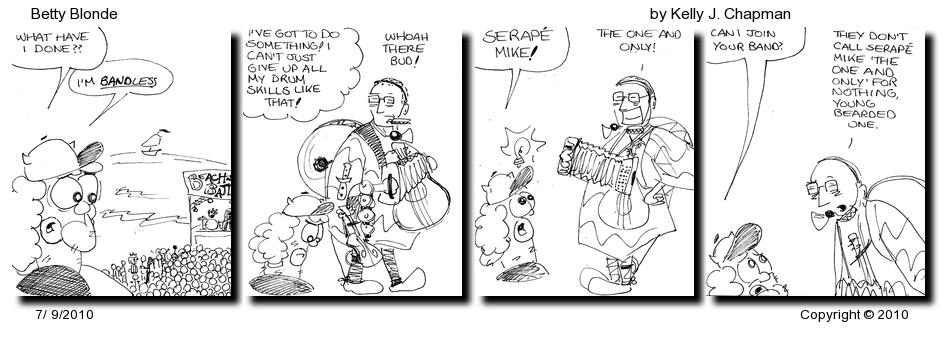


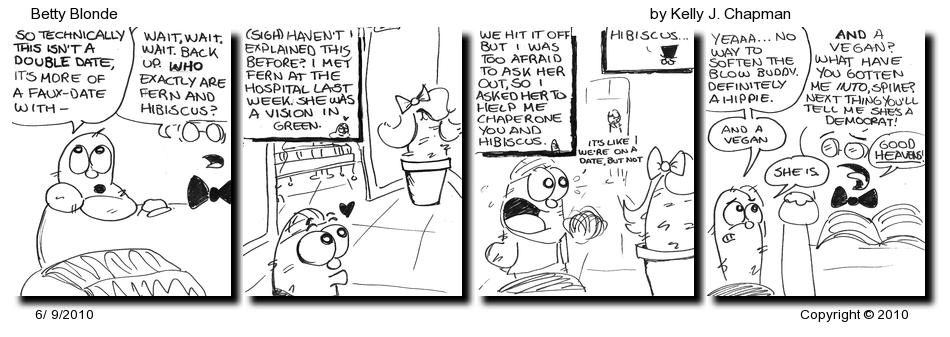
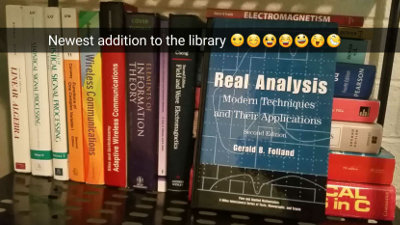 Late last night, Christian sent Lorena a Snapchat that reminded me my mind is not as able as it used to be, In some ways, I think that is a good thing–there are lots of good things I can still learn without hurting my brain. He was genuinely excited about it and, having seen this before, I know he will actually read the thing and to the bulk of the exercises. What a great thing. It inspires me to dive back into a learning project or two. In that regard, I found a new Predictive Analytics tool this weekend called
Late last night, Christian sent Lorena a Snapchat that reminded me my mind is not as able as it used to be, In some ways, I think that is a good thing–there are lots of good things I can still learn without hurting my brain. He was genuinely excited about it and, having seen this before, I know he will actually read the thing and to the bulk of the exercises. What a great thing. It inspires me to dive back into a learning project or two. In that regard, I found a new Predictive Analytics tool this weekend called 


 Lorena just came back from Seattle. She was up there for about five days to help Kelly because she has time for nothing but studying. In her PhD program she has to do two formal papers in addition to her dissertation. They are full-blown research projects with experiments and formal write-ups good enough they are often published in scholarly journals. Since first year students generally have never done such formal research, they have to learn everything from scratch. That was certainly true for Kelly. Kelly’s presentation of her first year paper takes place the second week of February and she is working every waking hour on the paper, her TA responsibilities, research for her advisor and the classes she has to take.
Lorena just came back from Seattle. She was up there for about five days to help Kelly because she has time for nothing but studying. In her PhD program she has to do two formal papers in addition to her dissertation. They are full-blown research projects with experiments and formal write-ups good enough they are often published in scholarly journals. Since first year students generally have never done such formal research, they have to learn everything from scratch. That was certainly true for Kelly. Kelly’s presentation of her first year paper takes place the second week of February and she is working every waking hour on the paper, her TA responsibilities, research for her advisor and the classes she has to take.